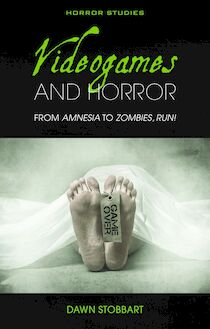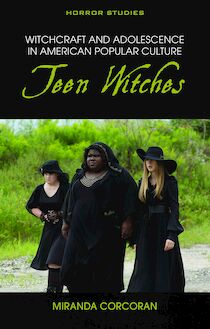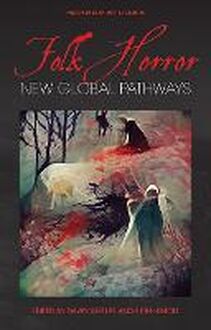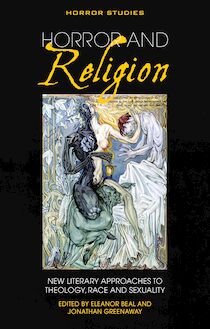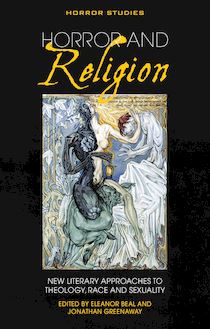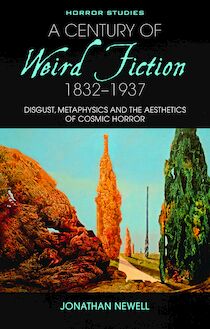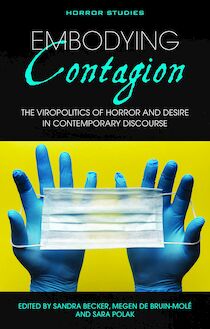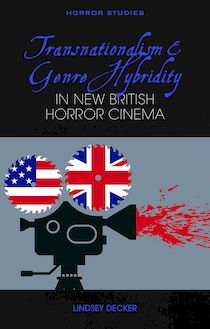-
 Univers
Univers
-
 Ebooks
Ebooks
-
 Livres audio
Livres audio
-
 Presse
Presse
-
 Podcasts
Podcasts
-
 BD
BD
-
 Documents
Documents
-
- Cours
- Révisions
- Ressources pédagogiques
- Sciences de l’éducation
- Manuels scolaires
- Langues
- Travaux de classe
- Annales de BEP
- Etudes supérieures
- Maternelle et primaire
- Fiches de lecture
- Orientation scolaire
- Méthodologie
- Corrigés de devoir
- Annales d’examens et concours
- Annales du bac
- Annales du brevet
- Rapports de stage
La lecture à portée de main
Vous pourrez modifier la taille du texte de cet ouvrage
Découvre YouScribe en t'inscrivant gratuitement
Je m'inscrisDécouvre YouScribe en t'inscrivant gratuitement
Je m'inscrisEn savoir plus
Vous pourrez modifier la taille du texte de cet ouvrage
En savoir plus

Description
OPEN ACCESS
To view Embodying Contagion for free click on the following link: https://www.uwp.co.uk/app/uploads/Embodying-Contagion-full-pdf-OA-low-res-min.pdf
This edited volume is also available to read on OAPEN: https://library.oapen.org/handle/20.500.12657/47586
From Outbreak to The Walking Dead, apocalyptic narratives of infection, contagion and global pandemic are an inescapable part of twenty-first-century popular culture. Yet these fears and fantasies are too virulent to be simply quarantined within fictional texts; vocabulary and metaphors from outbreak narratives have now infiltrated how news media, policymakers, and the general public view the real world and the people within it. In an age where fact and fiction seem increasingly difficult to separate, contagious bodies (and the discourses that contain them) continually blur established boundaries between real and unreal, legitimacy and frivolity, science and the supernatural. Where previous scholarly work has examined the spread of epidemic realities in horror fiction, the essays in this collection also consider how epidemic fantasies and fears influence reality. Bringing scholarship from cultural and media studies into conversation with scholarship from the medical humanities and social sciences, this collection aims to give readers a fuller picture of the viropolitics of contagious bodies in contemporary global culture.
Notes on Contributors
Preface
Embodying the Fantasies and Realities of Contagion
Part I: Epidemic Fantasies in Reality
Chapter 1: The Krokodil Drug Menace, Cross-Genre Body Horror, and the Zombie Apocalypse
Chapter 2: Preparedness 101: Zombie Pandemic and the Ebola Scare – How the CDC’s Use of Zombie Pop Culture Helped Fan a Nationalist Outbreak Narrative
Chapter 3: The Zika Virus, Ebola Contagion Narratives, and U.S. Obsessions with Securitizing Neglected Infectious Diseases
Chapter 4: An Affectionate Epidemic: How Disability Goes Viral on Social Media
Chapter 5: ‘Fatties Cause Global Warming’: The Strange Entanglement of Obesity and Climate Change
Part II: Epidemic Realities in Fantasy
Chapter 6: ‘Time is of the Essence, Doctor’: Twenty-First Century (Post-)Apocalyptic Fiction, White Fatherhood, and Anti-Intellectual Tendencies in FX’s The Strain
Chapter 7: Killable Hordes, Chronic Others, and ‘Mindful’ Consumers: Rehabilitating the Zombie in Twenty-First-Century Popular Culture
Chapter 8: Networks, Desire, and Risk Management in Gay Contagion Fiction
Chapter 9: This Long Disease, My Life:’ AIDS Activism and Contagious Bodies in Larry Kramer’s The Normal Heart and The Destiny of Me
Chapter 10: The Epidemic of History: Contagion of the Past in the Era of the Never-Ending Present
‘Contagion Contagion’: Viral Metaphors, Lockdown and Suffering Economies in the COVID-19 Pandemic
Bibliography
Sujets
Informations
| Publié par | University of Wales Press |
| Date de parution | 15 mars 2021 |
| Nombre de lectures | 0 |
| EAN13 | 9781786836922 |
| Langue | English |
Informations légales : prix de location à la page 0,1900€. Cette information est donnée uniquement à titre indicatif conformément à la législation en vigueur.
Extrait
HORROR STUDIES
Series Editor Xavier Aldana Reyes, Manchester Metropolitan University
Editorial Board Stacey Abbott, Roehampton University Linnie Blake, Manchester Metropolitan University Harry M. Benshoff, University of North Texas Fred Botting, Kingston University Steven Bruhm, Western University Steffen Hantke, Sogang University Joan Hawkins, Indiana University Agnieszka Soltysik Monnet, University of Lausanne Bernice M. Murphy, Trinity College Dublin Johnny Walker, Northumbria University
Preface
Horror Studies is the first book series exclusively dedicated to the study of the genre in its various manifestations - from fiction to cinema and television, magazines to comics, and extending to other forms of narrative texts such as video games and music. Horror Studies aims to raise the profile of Horror and to further its academic institutionalisation by providing a publishing home for cutting-edge research. As an exciting new venture within the established Cultural Studies and Literary Criticism programme, Horror Studies will expand the field in innovative and student-friendly ways.
The Contributors, 2021
This work is licensed under the Creative Commons Attribution-NonCommercial-NoDerivatives 4.0 International Licence. To view a copy of this licence, visit http://creativecommons.org/licenses/by-nc-nd/4.0/ or send a letter to Creative Commons, PO Box 1866, Mountain View, CA 94042, USA.
www.uwp.co.uk
British Library Cataloguing-in-Publication Data
A catalogue record for this book is available from the British Library.
ISBN 978-1-78683-690-8 eISBN 978-1-78683-692-2
DOI 10.16922/contagion
The rights of The Contributors to be identified as authors of this work have been asserted in accordance with sections 77 and 79 of the Copyright, Designs and Patents Act 1988.
The University of Wales Press acknowledges the financial support of the Dutch Research Council (NWO).
Cover image Shutterstock
The publisher has no responsibility for the persistence or accuracy of URLs for any external or third-party internet websites referred to in this book, and does not guarantee that any content on such websites is, or will remain, accurate or appropriate.
Contents
Acknowledgements
Notes on Contributors
Preface Priscilla Wald
Embodying the Fantasies and Realities of Contagion Megen de Bruin-Mol and Sara Polak
Part One: Epidemic Fantasies in Reality
1. The Krokodil Drug Menace, Cross-Genre Body Horror and the Zombie Apocalypse Peter Burger
2. Preparedness 101: Zombie Pandemic and the Ebola Scare How the CDC s Use of Zombie Pop Culture Helped Fan a Nationalist Outbreak Narrative Sara Polak
3. The Zika Virus, Ebola Contagion Narratives and US Obsessions with Securitising Neglected Infectious Diseases Madison A. Krall, Marouf Hasian Jr and Yvonne Karyn Clark
4. An Affectionate Epidemic How Disability Goes Viral on Social Media Angela M. Smith
5. Fatties Cause Global Warming The Strange Entanglement of Obesity and Climate Change Francis Ray White
Part Two: Epidemic Realities in Fantasy
6. Time is of the Essence, Doctor Twenty-First-Century (Post-)Apocalyptic Fiction, White Fatherhood and Anti-Intellectual Tendencies in FX s The Strain Sandra Becker
7. Killable Hordes, Chronic Others and Mindful Consumers Rehabilitating the Zombie in Twenty-First-Century Popular Culture Megen de Bruin-Mol
8. Networks, Desire and Risk Management in Gay Contagion Fiction Mica Hilson
9. This Long Disease, My Life AIDS Activism and Contagious Bodies in Larry Kramer s The Normal Heart and The Destiny of Me Astrid Haas
10. The Epidemic of History Contagion of the Past in the Era of the Never-Ending Present Elana Gomel
Notes
Epilogue
Contagion Contagion Viral Metaphors, Lockdown and Suffering Economies in the COVID-19 Pandemic Sandra Becker
Bibliography
Acknowledgements
I DEAS, LIKE VIRUSES, are not very effective in isolation. We are indebted to this book s many contributors, including those whose work does not appear in the final manuscript. In particular we want to acknowledge Michelle Green, who played a key role in the book s early development. We are also indebted to the Dutch Research Council (NWO) and to Leiden University Centre for the Arts in Society for their generous financial support of this collection. Many thanks to the fantastic team at University of Wales Press, including our commissioning editor Sarah Lewis, copy-editor Heather Palomino, Dafydd Jones and the rest of the editorial team. Many thanks are also due to Josje Calff and Menno Polak, our external proofreaders.
Above all, we would like to dedicate this book to all those people whose bodies have been pathologised, stigmatised, marginalised and downright endangered by their media, their neighbours and their nations. You deserve better.
The Editors, October 2020
Notes on Contributors
Sandra Becker is a lecturer in the Department of Media and Culture Studies at Utrecht University, the Netherlands. When the work on this collection began, she was in the final stages of her PhD project Fathers of the Nation: White Masculinities and Fatherhood in Contemporary US-American TV Series (2001-2016) in the Department of American Studies at the University of Groningen. Approaching early 2000s TV series such as Breaking Bad , The Walking Dead and The Strain as cultural-historic artefacts, she analysed their depiction of their white father protagonists against the backdrop of socio-economic and political events and gendered discourses at the beginning of the twenty-first century that paved the way for the election of Daddy Trump . She has published and taught on both the contagious medium television and the concept of toxic masculinity.
Megen de Bruin-Mol is a lecturer in Digital Media Practice at the University of Southampton. She specialises in historical fiction, popular culture and contemporary remix. Her book Gothic Remixed: Monster Mashups and Frankenfictions in 21st-Century Culture (Bloomsbury, 2020) explores the boundaries and connections between contemporary remix and its related modes through the lens of monster studies. Since 2016 she has been an editor of the Genealogy of the Posthuman , an open-access initiative curated by the Critical Posthumanism Network ( http://criticalposthumanism.net/genealogy/ ). Read more about Megen s work on her blog: frankenfiction.com .
Peter Burger is assistant professor in the Department of Journalism and New Media at Leiden University. He applies rhetorical perspectives to journalism, narrative folklore and social media discourse, with a special interest in crime stories, fact-checking and disinformation.
Yvonne Karyn Clark is a graduate student at the University of Utah, where she studies critical and cultural approaches to rhetoric of popculture media, technology, and space and place.
Elana Gomel is an associate professor at the Department of English and American Studies at Tel-Aviv University. She has taught and researched at Princeton, Stanford, University of Hong Kong and Venice International University. She is the author of six academic books and numerous articles on subjects such as narrative theory, posthumanism, science fiction, Dickens and Victorian culture. As a fiction writer, she has published more than fifty fantasy and science fiction stories and three novels. She can be found at https://www.citiesoflightanddarkness.com/ .
Astrid Haas is Marie Curie Research Fellow at the Institute of Black Atlantic Research, University of Central Lancashire, UK. Holding a doctorate from the University of Muenster and a postdoctoral degree from Bielefeld University, she taught American Studies at several universities in Germany. Her research covers travel writing, drama and autobiography, the Black and Latinx Diasporas, Gender and Science Studies. She wrote Stages of Agency: The Contributions of American Drama to the AIDS Discourse (Winter Verlag, 2011) and Lone Star Vistas: American, Mexican, and German Travel Narratives of Texas, 1821-1861 (University of Texas Press, 2021). Her current, EU-funded research is entitled Black Inter-American Mobilities and Autobiography in the Age of Revolutions (1760-1860) .
Marouf Hasian Jr is full professor in the Department of Communication at the University of Utah, and is a distinguished professor at that university. He is the author of some twenty books covering critical genocide studies, humanitarian rhetorics, postcolonialism, indigeneity studies, critical legal studies and critical memory studies.
Mica Hilson is an associate professor at the American University of Armenia, where he chairs the English and Communications programme. His research on modern and contemporary literature, popular culture, ecocriticism, and sexuality studies has appeared in numerous journals - including Pacific Coast Philology , The Comparatist and Doris Lessing Studies - as well as many edited collections, including Security and Hospitality in Literature and Culture (Routledge, 2016), The Ethics and Rhetoric of Invasion Ecology (Lexington, 2017) and Curricular Innovations: LGBTQ Literatures and the New English Studies (Peter Lang, 2019).
Madison A. Krall (University of Utah) is a PhD candidate in the Department of Communication exploring how rhetorical norms and practices are related to public perceptions of science, health and the body. Her chapter titled Negotiating Public Scientific Regulatory Controversies: Dr Frances O. Kelsey s Productive Postponement of Thalidomide in the United States is part of the forthcoming edited collection Reframing Rhetorical History (University of Alabama Press, 2021) and she has co-authored articles appearing in journals such as Quarterly Journal of Speech and Health Communication . Krall teaches rhetoric and health communication courses and is currently writing her doctoral dissertation on the rhetoric surrounding the thalidomide disaster.
Sara Polak (Leiden University Centre for the Arts in Society) is assistant professor
-
 Univers
Univers
-
 Ebooks
Ebooks
-
 Livres audio
Livres audio
-
 Presse
Presse
-
 Podcasts
Podcasts
-
 BD
BD
-
 Documents
Documents
-
Jeunesse
-
Littérature
-
Ressources professionnelles
-
Santé et bien-être
-
Savoirs
-
Education
-
Loisirs et hobbies
-
Art, musique et cinéma
-
Actualité et débat de société
-
Jeunesse
-
Littérature
-
Ressources professionnelles
-
Santé et bien-être
-
Savoirs
-
Education
-
Loisirs et hobbies
-
Art, musique et cinéma
-
Actualité et débat de société
-
Actualités
-
Lifestyle
-
Presse jeunesse
-
Presse professionnelle
-
Pratique
-
Presse sportive
-
Presse internationale
-
Culture & Médias
-
Action et Aventures
-
Science-fiction et Fantasy
-
Société
-
Jeunesse
-
Littérature
-
Ressources professionnelles
-
Santé et bien-être
-
Savoirs
-
Education
-
Loisirs et hobbies
-
Art, musique et cinéma
-
Actualité et débat de société
- Cours
- Révisions
- Ressources pédagogiques
- Sciences de l’éducation
- Manuels scolaires
- Langues
- Travaux de classe
- Annales de BEP
- Etudes supérieures
- Maternelle et primaire
- Fiches de lecture
- Orientation scolaire
- Méthodologie
- Corrigés de devoir
- Annales d’examens et concours
- Annales du bac
- Annales du brevet
- Rapports de stage
